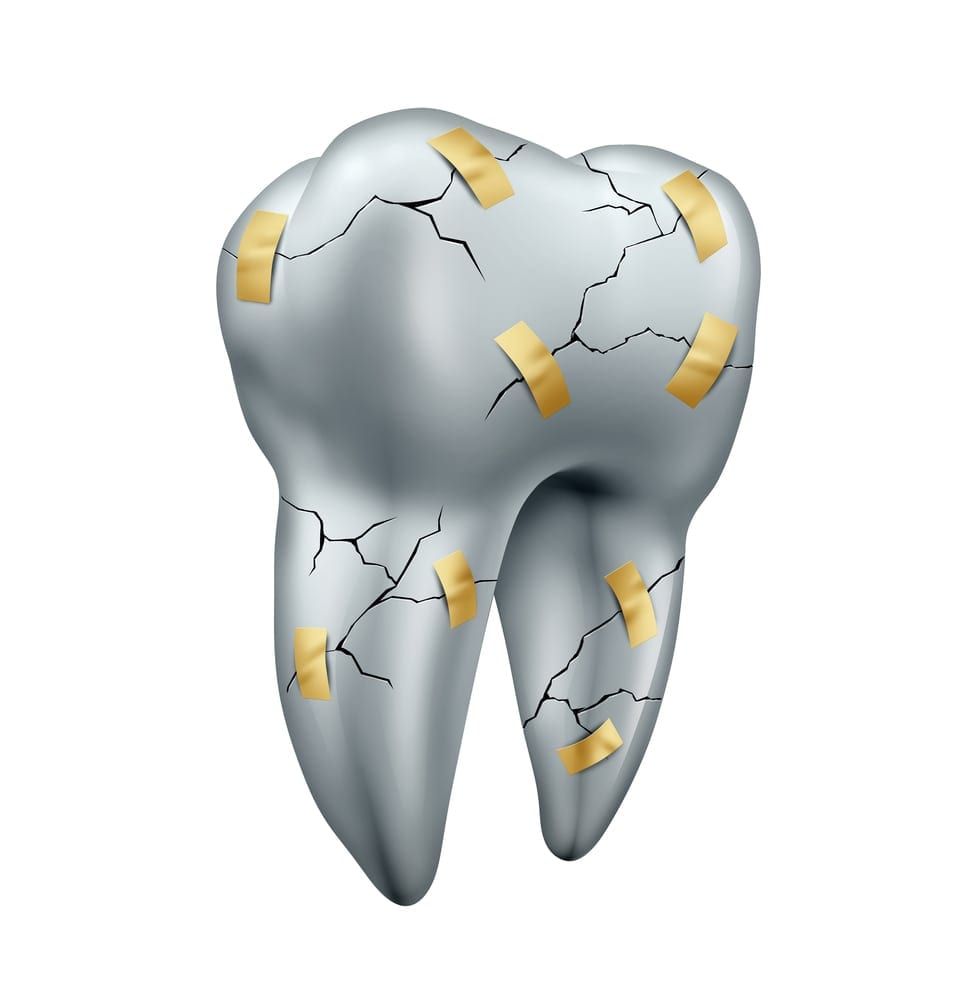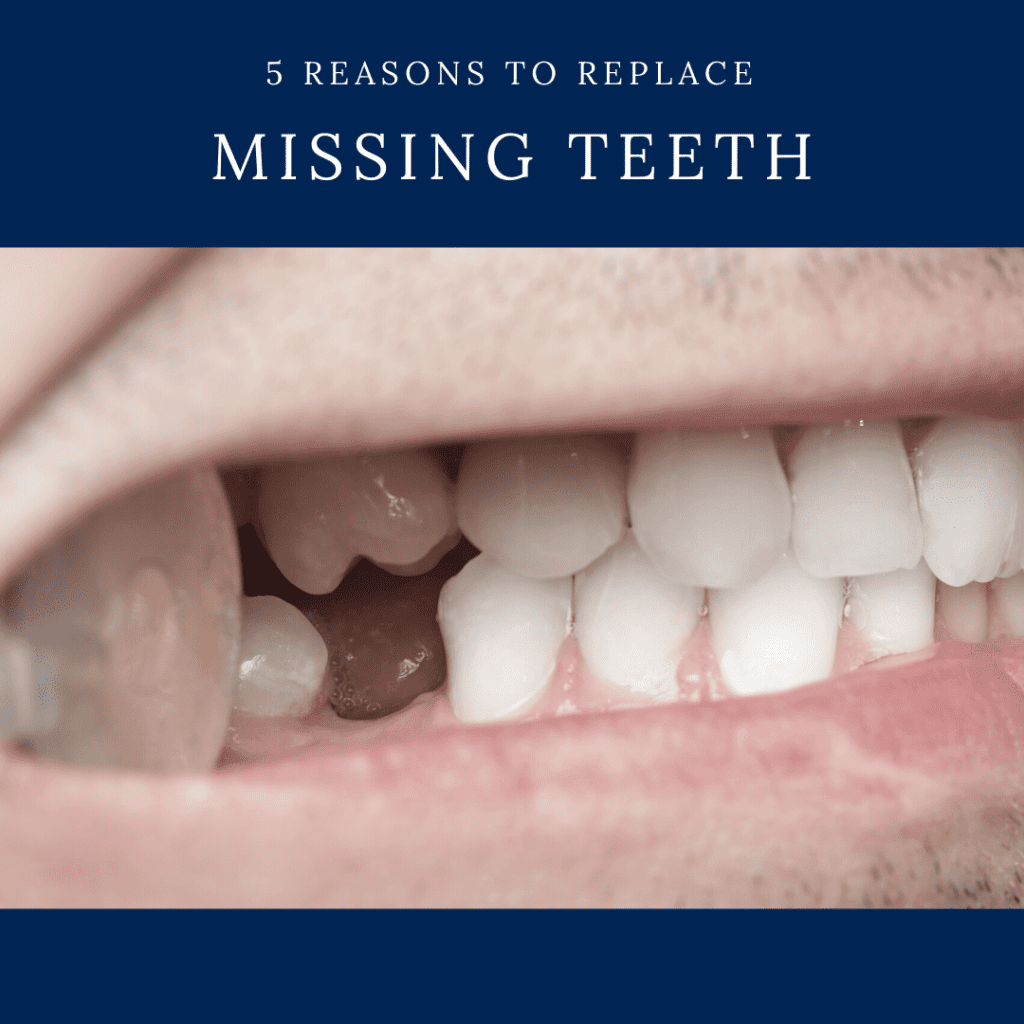When you lose a primary tooth, it is quickly replaced with a permanent tooth. However, if you are to lose a permanent tooth, there is no natural replacement since humans only have one set of permanent teeth. This ultimately means that losing a permanent tooth results in a permanent gap. However, modern dentistry offers a variety of tooth replacement restorations used to fill in the gaps left by missing teeth. In fact, dentists recommend replacing a missing tooth as soon as possible to avoid the consequences associated with missing teeth. You see, not replacing missing teeth can cause a number of things to happen, including:
Shifting Teeth
First and foremost, you may experience shifting teeth. This happens because there is a space left behind by your missing tooth that the adjacent teeth will naturally want to fill. However, filling this space means that the teeth around the gap will shift in position to close the gap left by a missing tooth. Unfortunately, as one tooth begins to shift each one next to it will shift and so on and so forth. As time passes, you will have an entire mouthful of teeth that have shifted.
Damaged Teeth

Once your teeth have shifted in position, they will no longer line up properly with opposing teeth. This means that certain parts of your teeth may absorb more impact while chewing, which can cause them to become damaged. This is especially prevalent among people who grind their teeth at night, since teeth grinding already weakens the enamel. Depending on how and where the tooth is hit, small pieces may chip off or the entire tooth may crack.
Enamel Wear
Even if your teeth are not damaged by chips or cracks, it is still highly likely that their enamel will wear down much faster. This generally happens in cases where the opposing teeth don’t meet up properly, but there is not enough stress to cause damage. Although the teeth are not being actively cracked or chipped, however, the gradual wear of enamel will weaken the protective layer. Eventually this can lead to the development of tooth sensitivity. It can also increase the risk of tooth decay, since the protective layer becomes thinner and easier for bacteria to penetrate.
TMJ Problems

As mentioned above, the teeth adjacent to a gap left by a missing tooth will gradually shift their position to fill in the gap. As more and more teeth follow suite, this changes the natural alignment of your teeth. Additionally, it can cause your bite to become uneven since the upper and lower teeth no longer meet correctly. Having an uneven bite places more strain on your temporomandibular joint, which can result in an overuse of the joint. Problems with your jaw joint can cause headaches, earaches, facial pain, and jaw pain. In some cases, it can even impair your ability to chew properly or have proper jaw function.
Overgrowth
Just as the teeth adjacent to a gap left by a missing tooth will gradually shift sideways to fill the gap, teeth opposing a gap will eventually grow longer to fill the gap. This is a phenomenon known as overgrowth and it occurs because there is no oppositional force to prevent one tooth from continuing to grow. This ultimately means that an opposing tooth has the potential to grow excessively long.


